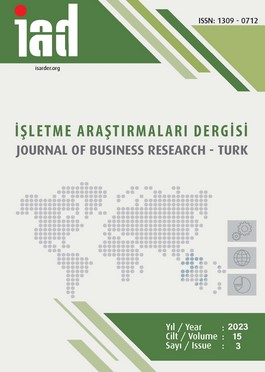The Relationships between Employees’ Perceptions of Organizational Justice, HR Attributions, and Affective Organizational Commitment
The Relationships between Employees’ Perceptions of Organizational Justice, HR Attributions, and Affective Organizational Commitment
Author(s): Ekin Gülsün TURAN, Eda AksoySubject(s): Organizational Psychology, Management and complex organizations, Human Resources in Economy
Published by: Orhan Sağçolak
Keywords: Human resource management; HR attributions; Organizational justice; Organizational commitment;
Summary/Abstract: Purpose – The purpose of this study is to test Nishii et al.’s (2008) HR attributions theory with respect to explaining how individual variability in HR perceptions shapes work attitudes. Design/methodology/approach – Online surveys were sent to the organizational clients of a business consulting company operating in Turkey. Correspondents from organizations were asked to send the forms to a random group among their employees. Survey responses were received from 116 employees from 19 companies. The main and interactive effects of independent variables were tested using moderated multiple regression analyses conducted with SPSS Process macro (Hayes, 2012). Findings – The results supported the hypothesis that there is a positive relationship between employees’ perceptions of organizational justice and affective commitment. Furthermore, as expected, employees’ well-being and service quality HR attributions were found to be positively related to commitment, whereas union compliance HR attribution was negatively related to commitment. Cost-cutting and exploitation HR attributions were not found to be significantly related to commitment. Lastly, it was found that the relationship between justice perceptions and organizational commitment was moderated by only one of the five types of HR attributions, namely employee exploitation attribution. Hence, the moderation hypothesis was partially supported. Discussion – This study explained and provided empirical support for the role of employees’ perceptions of causal HR attributions as an important antecedent and regulator of organizational commitment. This implies that organizations should pay attention to understanding, managing, and maintaining employees’ idiosyncratic perceptions about the rationale behind the adoption of HR practices. Future research is needed to investigate other potential antecedents and outcomes of these HR attributions.
Journal: İşletme Araştırmaları Dergisi
- Issue Year: 15/2023
- Issue No: 3
- Page Range: 1705-1714
- Page Count: 10
- Language: English

